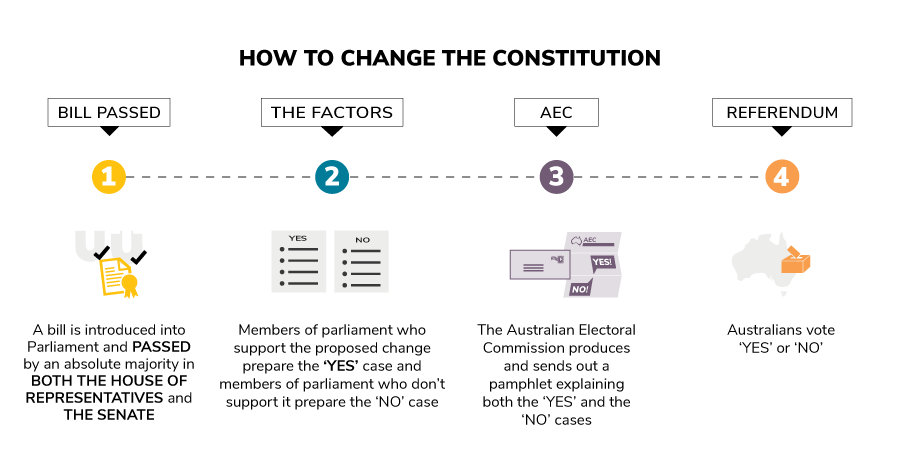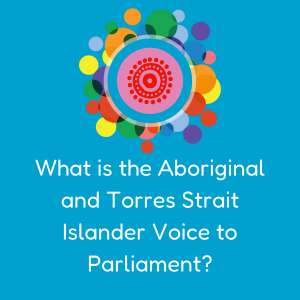In April 2023, the Mental Health Australia Board Directors agreed unanimously to Mental Health Australia’s public support for an Aboriginal and Torres Strait Islander Voice to Parliament. The Board noted the unequivocal links between identity, recognition and genuine engagement in policy development, and social and emotional wellbeing.
You can read our Submission to the Joint select committee on the Voice Referendum to learn more about Mental Health Australia’s formal position on the Voice.
Mental Health Australia has joined “Allies for Uluru” with more than 200 other social purpose groups to advocate for the Yes campaign. Mental Health Australia (through the Embrace Multicultural Mental Health Project) is also part of an alliance of multicultural community organisations that support the Voice referendum.
As the national peak for the mental health sector, it is incumbent upon us to recognise and respect varying viewpoints. Regardless of the outcome, the Referendum, lead up and result have and will continue to impact the mental health of First Nations Australians.
We are providing publicly available information and resources for our members, the mental health sector and everyone to have safe, respectful and polite conversations to care for and protect the mental health of First Nations Australians during this significant national discussion.
What is the Aboriginal and Torres Strait Islander Voice to Parliament?
All governments in Australia draw on expert advisory groups to make informed decisions about health, education, economics, and other policies.
Governments can choose whether they will follow this advice.
The Voice to Parliament would be one such body.
It would advise on laws and policies that affect Indigenous people.
One of its aims would be to advise on how governments can close the gap that still exists between Indigenous and non-Indigenous Australians on practical issues like life expectancy, employment and mental health and wellbeing outcomes.
What makes the Voice different to other advisory bodies is that its existence would be enshrined in the Constitution in recognition of Aboriginal and Torres Strait Islander peoples as the First Peoples of Australia.
The Constitution would specify only the existence of the Voice, not on its structure (such as who is on the Voice). The structure will be defined by legislation after a democratic process to establish a Voice design.
Members of the Voice will be expected to connect with and represent the views of their communities.
Read official information about the Voice, Frequently Asked Questions about the Voice, and myths and misconceptions about the Voice



Download these graphics
Access and modify a Canva template of these graphics
What is a referendum?
All proposed changes to the Australian Constitution need to pass a referendum. A majority of people in a majority of states need to vote ‘Yes’ – this is known as a double majority.
A referendum is a vote – all Australians eligible to vote participate in a referendum.

This image is from the Parliamentary Education Office.
Visit the Australian Electoral Commission for more information about the referendum and enrol to vote.
The Voice and mental health
The Voice has three major implications for mental health, particularly for the mental health of First Nations peoples.
Safe conversations
As with the 2017 marriage equality plebiscite, unfortunately there are realistic concerns that disrespectful discussions of the Voice could become a “platform for hate”.
Protecting the mental health of all Australians is paramount as we enter into political discussions and the democratic process. Regardless of your individual views about the Voice to Parliament, always be respectful.
When coming to conversations about the Voice, be trauma-informed. Keep in mind that First Nations people are more likely to have encountered intergenerational trauma, state violence, discrimination, and other damaging experiences. It is important not to re-perpetuate harm as we talk about the Voice.
The Yes23 campaign has great guidance for talking about the Voice to Parliament.
Another great resource is ANU’s Responding to Common Concerns about an Aboriginal and Torres Strait Islander Voice.
Blue Knot also has general resources on trauma-informed conversations.
Closing the gap
Successive governments have struggled to make policies that truly benefit the lives of Aboriginal and Torres Strait Islander individuals and communities.
“The gap” refers to the persisting inequalities in health, life expectancy, and other life outcomes faced by First Nations peoples in Australia. Despite “closing the gap” being on the government agenda since in 2008, these inequalities continues to persist. On some measures the gap has actually increased.
Aboriginal and Torres Strait Islander people experience mental ill-health and suicide at higher rates than other Australians, and more barriers to accessing mental health services.
Read more about Closing the Gap in our 2022 Report to the Nation, Gayaa Dhuwi’s Declaration, and the Australian Institute of Health and Welfare’s Indigenous health and wellbeing report.
Mental health is made more complex for First Nations peoples by a long history of trauma, grief, loss and cultural disconnection. These complexities require a culturally-informed, holistic approach to mental health that recognises connections to Country, community, and spirituality alongside both mental and physical health.
We believe that policies will only be effective where Aboriginal and Torres Strait Islander people can meaningfully shape them. The Voice is an opportunity for Aboriginal and Torres Strait Islander people to have a real say about policies affecting them. The Voice would consult with grassroots communities to ensure its advice to government is informed by their experience, including the experience of those who have been historically excluded from participation.
The Voice represents structural reform to empower ongoing self-determination. Self-determination is really what’s needed to make progress in closing the gap in mental health and other outcomes.
A sense of recognition
Reconciliation is about strengthening relationships between Aboriginal and Torres Strait Islander peoples and non-Indigenous peoples, for the benefit of all Australians.
Recognition of Aboriginal and Torres Strait Islander peoples as the First Peoples of this land in the Australian Constitution is fundamental to reconciliation.
As Noel Pearson told ABC 7.30, “Reconciliation requires, as its foundation, the recognition of Aboriginal and Torres Strait Islander peoples as the First Peoples of Australia. With the Voice, we will have recognition, and we will have a proper foundation for reconciliation.”
While not as tangible as the potential benefits of closing the gap, such recognition nonetheless has psychological significance. Widespread recognition of First Nations peoples’ place in this nation and right to self-determination would constitute inclusion and provide a pathway towards healing.
Learn more about the Yes Campaign
Yes23
Australian Government Voice Resource
The Uluru Statement Design Principles of the Aboriginal and Torres Strait Islander Voice
Have other resources to share?
Get in touch with us
Mental Health Australia supports a voice to Parliament. We recognise there are differing views and want all Australians to have and encourage safe and respectful conversations. Whatever way you might be thinking about voting in the Referendum.

